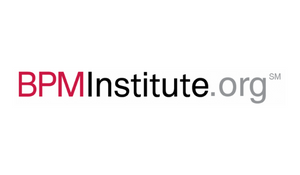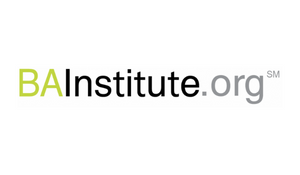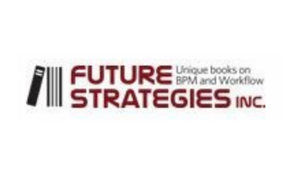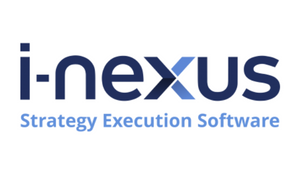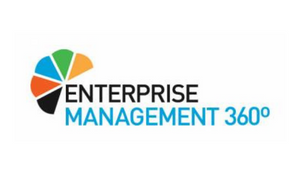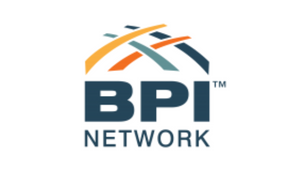
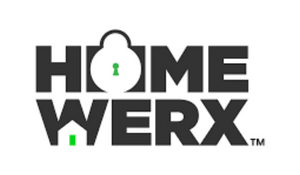
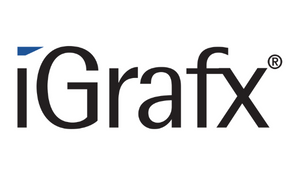
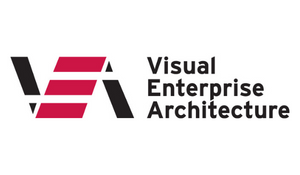
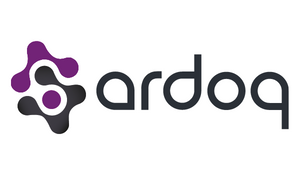
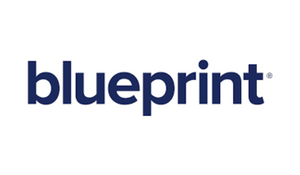
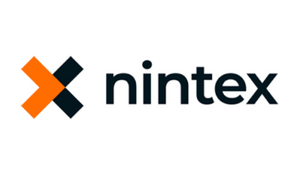
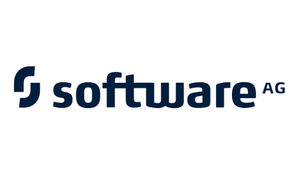

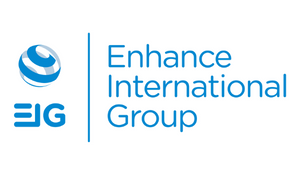
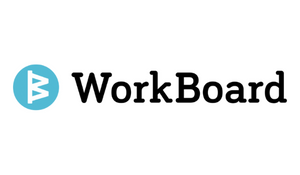
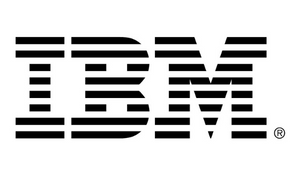
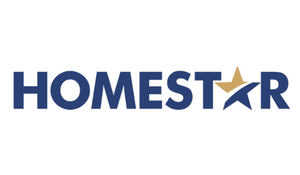

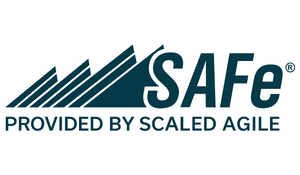
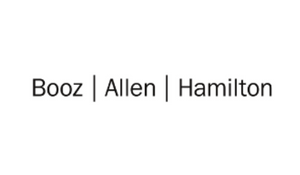
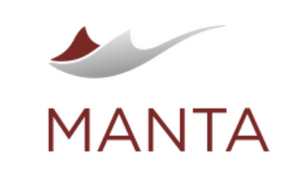
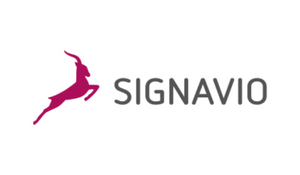
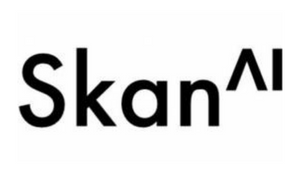

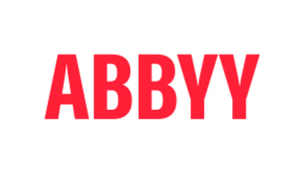

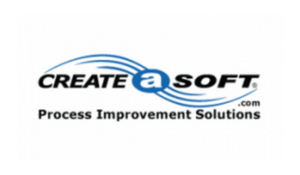
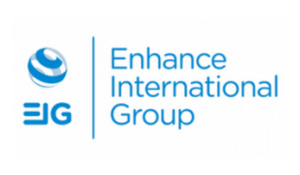
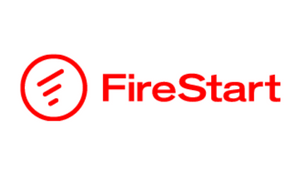

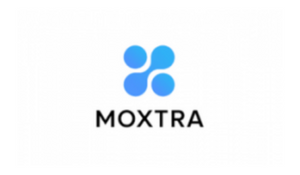
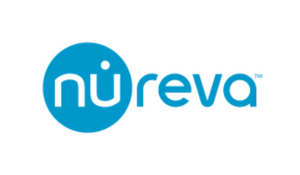
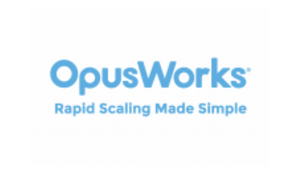
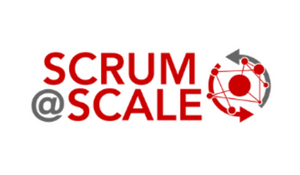
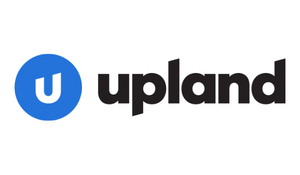
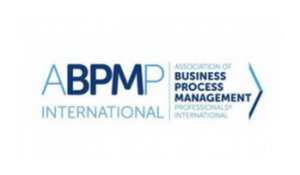
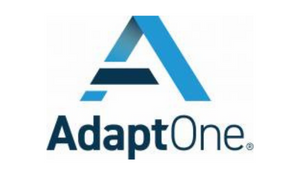
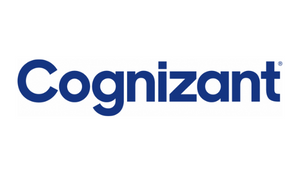
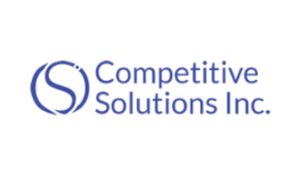
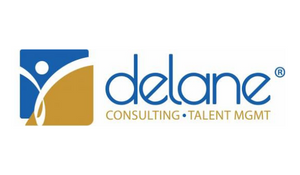

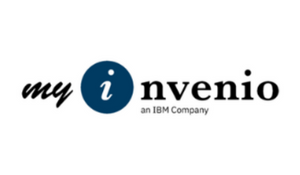
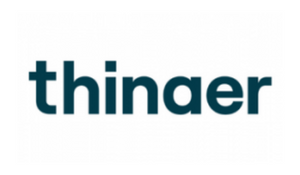
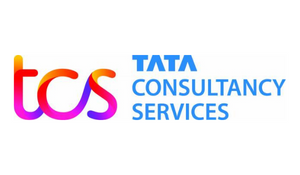
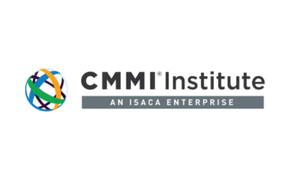
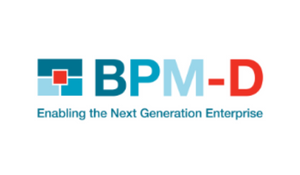

Courtesy of Excellence & Innovation's Jose Pires, HP Inc's Rajeev Jain, UIPath's Brandon Nott and Morningstar's Marco Chmura below is a transcript of his speaking session on 'RPA & IA: The impact of Covid-19 and what the Future holds?' to Build a Thriving Enterprise that took place at BTOES From Home.
.png?width=400&name=Untitled%20design%20(44).png)

Session Information:
RPA & IA: The impact of Covid-19 and what the Future holds?
BTOES expert panel provides an exploration of what has been driving the high octane journey of RPA & IA and what the future holds post Covid-19.
Session Transcript:
The certainty and rapid change that we're experiencing right now so I'd like to first start by introducing our panelists who are just terrific we have directly from Chicago, Marco Chamura who is director of quality and transformation of Morningstar. Marco has served the company for over 12 years is responsible for driving transformational initiatives across the organization especially to help shape and implement RPA and other automation as well as enhance the impact of Morningstar, research now just below Marco.
We have Rajiv Jain who is coming directly from Bangalore, India. which is like midnight in Bangalore right now and he's here with us we're very grateful for that Rajiv is an accomplished leader of large and complex operations and an expert in operational excellence with over 30 years of experience across manufacturing shared services and financial services, currently he is the head of finance global operations at HP he has the unique distinction of being a certified quality leader and a certified master training for lean six sigma from ge additionally he has the honor of being the first executive belt at HP. He has a passion for coaching and developing leaders and is immensely proud of the people.
We have helped grow over the years and then we have Brandon Nott directly from Seattle and Brandon is the senior vice president president of product for focusing on attended automation and driving the a robot for every person initiative before joining UIPath, Brandon ran operations for a top 50 independent mortgage lender where he was a uh UIPath customer himself. Brandon takes a holistic approach to digital transformation that brings humans and technology together seamlessly.
I am so proud and honored to have you here with us taking your time of your incredibly busy schedules um yours you are some of the best in the industry and bringing it all together it just makes this panel uh incredible in my view so I would like you to start by just giving a bit of a personal professional perspective on what the last few months has been for you you know at an individual level on a professional level with all the disruption that's going on kind of the good the bad and the ugly if you will.
.png?width=402&name=Screenshot%20(33).png) I'm going to start with Marco just a quick snippet and then we'll go around on that sure great thank you Jose. So um I guess from from a personal level uh obviously we've our our global company has all been uh working remotely since march I've only been in the office a few times since we broke away to grab a few things uh so working from home of course uh I have a pretty good home environment . So I will say I'm somewhat blessed in that regard but uh you know still navigating a lot of the um personal challenges that come with you know not being able to access all the things that we like I was actually able to plan a quick wedding during the covet period that was successful and uh safe a smaller wedding.
I'm going to start with Marco just a quick snippet and then we'll go around on that sure great thank you Jose. So um I guess from from a personal level uh obviously we've our our global company has all been uh working remotely since march I've only been in the office a few times since we broke away to grab a few things uh so working from home of course uh I have a pretty good home environment . So I will say I'm somewhat blessed in that regard but uh you know still navigating a lot of the um personal challenges that come with you know not being able to access all the things that we like I was actually able to plan a quick wedding during the covet period that was successful and uh safe a smaller wedding.
Which I will say was uh uh kind of a blessing in disguise because it was kind of um a direction I would have liked to go uh pre-covered so it worked out uh but it was it was it was very um very successful we had a great time and that definitely tested our project management skills a little bit to put together a celebration during this period and then I think like a lot of folks I'm considering the urban exodus maybe a little quicker than I would have I love living downtown Chicago and uh it's been like I said very kind of comfortable so far and and I can't complain but there's definitely kind of more of I would say a uh a desire possibly to be in a suburb environment sooner than before just because of some of the advantages you can't take advantage of in the city now um that I'm sure a lot of other people are thinking about as far as Morningstar and some of the work that we're doing my role hasn't changed a ton we're a global company we've already been doing a lot of interacting virtually we were already leveraging zoom and virtual meetings for quite a while and doing a lot of kind of off-cycle meetings to manage time zones with Europe, Asia and and the US um but we still had to uh recognize that a lot of new folks are going to be working from home we had to establish new committees um we had to help facilitate a lot of the initiatives that are going to help support employees while we probably uh react to this in a more permanent environment.
We recognize that things are going to change probably for the long haul as far as maybe a hybrid work from home model and adjusting some of our physical office spaces and some of the ways that we collaborate um so we've we've helped organize some committees that I'll talk about that have isolated and prioritized a few tools and methods we can focus on as we're all working from home we've already been focused on automation for a few years as was mentioned in my intro but definitely thinking about it at another level a lot of more team interest as we've not necessarily been in a position where we've need to manage with less resources but as we continue to grow and we haven't changed those initiatives there's even more of a focus on automation uh in these times um and then finally uh really thinking more about how we can self-serve our clients.
I think that's going to be something else that gets more focus in all industries in the coming months and years and it's definitely an area that we're putting a little more attention to in the last couple of months than we necessarily were uh prior to all this happening so so there's just a few tidbits of kind of where our focus is heading during these times and I'll shift it over to uh Rajiv terrific congratulations again Marco on this big life thank you Rajiv yes thank you Jose uh so great to be here today and uh thank you for the kind introduction Jose uh I just want to add that in terms of my my that was about me but just a bit about my team we are a group of 1000 finance professionals.
You know and we we keep the HP incorporated financial machine humming by you know we we receive all the cash and applied into into our books we pay all our vendors and we pay all our employees and we make sure that everything goes on smooth so when private uh hit uh personal professional both uh situations were very interesting to manage personally I was traveling in the U.S. uh on a personal visit uh and we were watching the escalation of the curved situation and decided to cut over with this shot came back home early and it was a good decision because the very next day i had to decide to work from home completely for my entire group and it kind of worked out.
That I was not on vacation so you know uh that was on the personal side professionally we've been proud to keep the machine humming and keep moving forward on all our day-to-day as well as our strategic goals but uh I found this event as a once in a lifetime hopefully once in a lifetime event of of a lot of learning you know it reminded me of uh conversations like you know all the most of businesses in the world really focus on profits everyone does right and all the good ones focus on people as well so these are the two p's uh and then I got reminded of whatever uh founders bill and Dave said in terms of you know if you're just focused on profits uh ultimately you're going to be a big burden on the on the society so you have to really focus on the third p which is planet and and this event really forces us to think about uh how the planet uh situations can impact everyone right so professionally.
I'm learning that you know uh because of covert situation uh you would your business could gain in the short term you know if you're in digital entertainment like us in the pc business we really can shut down right uh or you could lose in the short term like in our printing business we have that challenge you know all the print is moving out of offices uh you know it's not going to be very quickly coming back but really uh if you think long term any negative impact on planet is going to impact every business negatively there is no choice you know so uh we really have to make sure that we use the power of technology digital and automation intelligent automation uh to do something good for all the three P's.
I do believe very strongly that it is possible to leverage all these technologies to really make an impact on all the three pieces so there's a couple of quick examples to share for you for you right i mean as a as a print in the offices kind of took a big hit um HP as a company decided to you know push the installing program now what is instantly it is it's supply of ink to your place of work or stay wherever you you have on a subscription basis iot enabled technology driven and you get your next cartridge before you know you need it because the machine knows and it communicates and I think we have been pushing very hard on that and you know while people are working from home they should never get interrupted uh those are home to my own group like we we had to figure out how do we now communicate with the thousand people globally in a seamless way become closer to each one of them and really don't miss a beating in our routine as well as in our innovation so we we ran a very interesting hackathon.
We called it in Delhi fest which brought everyone competing with each other you know building intelligent automation projects including RPA including analytics including python to solve a problem and then present in front of our cfo and cto uh and uh that was a hit i mean uh into terms that everyone really enjoyed that experience and learned in the process so i think we're all trying to innovate how we manage the things professionally and so far it's working but i think we hope this situation ends soon uh but as businesses as innovators we'll probably keep finding alternatives uh so very good for that thank you for that Rajiv, Brandon tell us a little bit about life in Seattle work with this new world order what it has been like thanks you know it's really interesting because I think on for the first time at least for me personal and professional are overlapping like never before right.
I used to think about work-life balance now it's like muddied waters of work and life and you know we find ourselves sitting in front of the screen for 10-12 hours and and you you stop at some point and say what's happening here you know how how what what new skills do I need to bring to bear in order to manage the fact that I have no commute time.
So I can work more and my lunch breaks are super fast so I can work more and and we have to find some new techniques and for me at least I think as many folks sitting at home in an office or maybe not in office you know i can be interrupted at any time in fact I have a 100 chance of needing an emergency mute at some point in time during this call while my children do something right that's unexpected and in a 50 chance that one of them will come running through the door and I think a year ago, this was terrifying but now somehow it's humanized all of us and and we're recognizing that we're all kind of in this together and we're all making compromises.
So I think just on that personal professional angle there that blur has been challenging uh but there is some upside to it and i do think that that this commonality is has helped us and one of the ways that manifests i think is just the communication i mean as it was mentioned earlier with the the zoom calls and being prepared to move to this digital way of communicating and you know in some senses it's been an easy transition because these are not net new technologies but still losing that direct human human interaction is extremely hard and and sometimes.
I think we underestimate how important those direct connections are whether it's going to a white board with a group of people and having that creative energy in the room or even with friends and family not being able to have that connection so i think as you know some of the big learnings for us is that as we move more and more into these digital forms of communication into automation there's there's ironically an even bigger focus on the human side of all of this similar to Rajiv your your point there and i think as we we explore this conversation.
We're going to see more threads of automation not taking away the humans role in the workforce but really unlocking the humans role very good that's those are awesome perspectives and as a matter of fact i want to i want to start right with the paying tribute to the audience here who is who are asking questions even before the session started so I certainly had a number of questions that i could ask you but forget about my questions because it doesn't matter it's their questions that matters most and i want to go straight to Vipul Gupta and I want to encourage everybody else on the call to make sure that you're going to the app and ask your questions because I'm going to get as many as possible directly from there because if we can get answers to the questions that add the most value to your context that's where that's what we want to do so Vipul says hello this seems to be a very interesting topic i would be interested in knowing the panel's point of view on the best technological investment for 2021 and I think part of this question is hey nobody predicted 2020 there are a lot of technologies are being used now and to a certain extent technologies have been accelerated because of the shift and uh so what should we expect in 2021 what do you think will be from a technological point of view what 2021 will look like I would just want to say like i mean it depends on your business context as well to some extent but the human angle of it uh is very relevant right any business.
You are in right now you're dealing with the same human challenge and therefore you know the technologies which are bringing people closer together the technologies which are including our driving inclusion in the diversity we have uh the technologies uh which are really helping you innovate and collaborate even from a distance you know uh those will really make a mark and right now those are fantastic investments uh you know so I would think that's the first step right and then obviously as for your business context it is uh anything which brings your customer closer to you uh you know uh without going physically to him or her is absolutely critical and you know and the third pretty quickly i would i mean the the digital editor manufacturing which HP is going on right i mean we had a lot of success in building uh parts immediately millions of parts to be given to the healthcare workers and the industry as the coveted i think uh so technologies like this which are digital additive which don't create waste on the planet will be fantastic and best investments not just for one year maybe for a long time very good Brandon and Marco any perspectives there on what you see happening in 2021 is there more of a consolidation of new technologies or or of existing technologies or it's some new technologies that you can see coming up Marco your audio is not coming through do it don't check for it yeah no no I yeah I'd echo a lot of uh rejects comments i think it really depends on on your maturity level within certain areas.
You know you have to kind of do it um depending on on where your needs are what will help you be more productive if if a company hasn't already taken its path towards automation i will definitely advocate for stepping into the RPA arena and taking advantage of some of the opportunities to you know to Brandon's point to kind of take some of the manual workflow out of the human and let us focus on our more value-added activities um like I mentioned before we have some kind of work from anywhere committees right now that are evaluating a lot of requests for tools that come in from our employees and um i won't call out any any specifics but we are um you know building an enterprise approach to a collaboration tool that we haven't had before that maybe wasn't as mandatory as when um we were all able to jump into a room and whiteboard together and and there was just a lot more creative energy in the physical workspace than there is now um I think that any opportunity to yeah bring us closer to our our clients is a um is something we're going to be taking advantage of we're experimenting with uh several of the chat bots that are out there now um we're experimenting internally uh with some of just the the free versions to get the the basics of kind of having a chat bot set up having it call data having it give quicker answers um but then I'll just add that the the final piece that i think will become big for us in 2021 is is taking advantage of some of the machine learning opportunities so um whether it's within rpa or within chat um starting to pilot and test use cases for um you know the bots actually being able to learn as they go um and navigate some of the nuances of some of our more complicated documents we're trying to automate or being able to understand the ask of some of our chat users as the conversations carry forward uh we're kind of i would say even you know in year two three four uh still at a basic level in some of those regards so i think that'll be a big um advancement in 2021 very good now Brandon.
You are at the core of product and development and you really kind of know where this thing is going so tell us a little bit about what what you see you know in terms of technologies in general but certainly for an rpa perspective you know what's what's coming down the road here gosh it's a it's a broad and a deep topic it's broad in the sense that we recognized a few years ago that rpa while immensely powerful is one part of the automation story so you have to start looking earlier up the funnel how are we coming up with the ideas to automate sometimes it's from people in crowdsourcing sometimes it's from automated systems looking at logs sometimes it's from automated systems looking at actions so we we needed to push up the the funnel if you will and expand our product line there on the other side we you have to push backward.
You know down and look at the results of all of these actions what type of monitoring are you doing right do you have real time intervention do you have human in the loop how are you processing the results of all of this and and certainly in highly regulated organizations you need to make sure that there's sufficient audit trail so when we think about analytics and the monitoring rpa for for us and and by other names has taken on this this very broad definition now and this is good now it's also going deeper we just talked about AI and ml and how do some of these models find their way into the processes that you're building so that robots or people or whatever the case may be can hit those models in real time and have a response while they're on the call with a customer or while they're engaged in in the process in order to create additional value there so when when you look at where the technology is going it's going to continue to expand and i could easily spend 30 minutes. just talking about all of those different areas but it it's going to expand and it's going to consume more of the space that we're looking at and then within that space you're going to have more options on how deep you want to go how much integration you want to have which which i think makes it very exciting certainly for next year in the coming years very much so now uh you know you're seeing product development happen uh because you're at the very center of that.
Marco I'm curious from your perspective as an user a Morningstar tell us a little bit about kind of a you know a summary of the history of rpa and Morningstar and the financial services you know automation and uh where you are today you know just give us a snapshot of what does that look from the customer or the end user well the business user standpoint here yeah yeah sure so so we started uh like i said a little over three years ago really just by seeing an opportunity for a new tool to kind of enter our continuous improvement space we've been practicing lean at Morningstar for a number of years and facilitating good discussions around you know the waste that exists in processes some of the inconsistencies that exist quality challenges and you know when we learned of RPA.
We saw a big opportunity for us to be able to kind of insert that into our tool kit and and leverage across all the different teams that we were working with so we piloted with really just in our one of our audit teams saw a lot of success with automating some of our um processes for putting together data that we do our key auditing activities off of and then we're able to scale up our our license model we first had to select a vendor.
So i'll uh be happy to say we've had a good relationship with uipath to date uh we were able to you know do a vendor evaluation which is you know a good exercise for anyone getting into this space and even you know all the new tools we're looking at now around whiteboarding collaboration tools chat bots um anything we can we're looking at project management tools right now because that's a sore point as well it's always doing a pretty thorough vendor evaluation uipath is a good support model good training they allowed us to get our feet wet with their um kind of initial version so once we were able to expand our licenses a little bit and start to educate the rest of the business we were able to build a little bit of a program and workflow around a centralized model.
So we actually set up about initially three or four developers out of our global Asia offices and we now have about 10 developers so building a little bit of a center of excellence once we got more familiar with it we'll still consider at some point having maybe a federated model where there's more developers at other areas of the organization but we thought to initially centralize it and focus the coding on a dedicated group of you know mid-level developers that could take care of all of the logistics and coding activities while the business really focused on what Brandon mentioned earlier the ideation process um thinking through does rpa make sense should we automate centrally or should we use rpa temporarily.
What are some of the better processes to automate that are you know have better structured data more frequent you know less exceptions built in um so better process identification um and then really uh marketing it right as folks had success identifying certain processes getting them automated um supporting them ongoing uh really telling the story and and kind of uh broadcasting the success certain teams had um and growing it to other areas of the business scaling up our licenses and really just kind of rinse and repeat and learning from different areas teams had success with we've since been able to expand to like i said about 10 mid-level developers working with over 200 process owners at the company.
We're a 7 000 employee company now but we're really focused on the key process owners that have a lot of the ownership of those annual repetitive processes in the business and we can kind of funnel the the sop writing and the logistics behind automation through that group but we've been able to automate just over 500 processes today a varying size but we measure by the annualized hours saved as well as quality wins there's a lot more consistency in the way a lot of the processes are executed now so we've reduced the number of you know client inquiries or any data inconsistencies especially with anything that that goes directly to the client so our client has seen wins from it our employee base has certainly enjoyed it and has a much pleasurable more pleasurable experience when it comes to some of the nasty quarterly processes that we had to build a ton of spreadsheets and send out 50 emails manually or qa a ton of pdf documents you know removing that from the workflow has been very successful and saved us over 75000 annualized hours so seen a lot of return on investment and we've seen yeah a lot of um growing interest really in in the past uh six to nine months specifically as we've hit this environment so um that's kind of a little bit along the evolution.
I'll just add one more thing that we also had to get stock certified so we've been working through putting controls in place that really help us manage the use of rpa similar to some of our other key software platforms that you know anything that impacts our financials we're a public company has to be you know governed properly so we recently got stock certified as well so we'll be able to expand to some of our more sensitive areas of the business as well so a lot more to come that that's that's quite a journey and there are lots of I mean incredible results.
You have gotten there i mean really significant results Rajiv I'm curious also from your perspective at hp slightly different business a lot of manufacturing you're running finance operations uh what is the role uh what is the level that you have implemented rpa at HP finance operations at this point finance operations I'm sorry you're good you're muted there for a moment but you came back on go ahead okay okay I'm sorry so finance operations that you know at HP actually took the lead to uh implement rpa we started what three plus years ago and i think we we kind of thought about it not just as a automation tool but really uh a tool to integrate with the word process re-engineering uh you know efforts and we we use our lean six sigma thought processes.
We embedded that into our processor engineering uh mechanisms and created toolkit out of that which would leverage you know rpa at the right places uh now we did that for two or three years almost i think uh and about a year ago i kind of stood up and said look we are done with basic rpa uh because we really don't have much more we kind of uh 30 to 40 productivity improvements over three years period uh using rpa related pieces right and and uipath has been our partner all through as well um now it's been a great journey on that and then we realized.
You know there's couple of things more here happening you know we now are getting too much of unstructured data most of the structured data we are taking care of uh so now we are we got to find answers for unstructured data so we have to really look at other other tools and technologies like nlp uh like like analytics python and and you know other other pieces which we just did not have a very good handle on so in the last year or so we're kind of ramping up on that other hp complete as a company has been a leader in deploying s4hana we are almost at the end of that deployment as a company right so we take we get advantage by that right i mean now i have an opportunity to now rethink my processes for future I'm going to look like post s4 what additional re-engineering opportunities exist uh how much rpa actually we are changing along the way uh you know to be honest.
I mean when you invest into something new and micro you might want to note this you know you really over invest in it at the start right and over a period of time we realized we actually had created an opportunity out there to improve our watch utilization in the last one year we've kind of improved our watch utilization by about 25 uh taken some cost out of that as well so it's good right and and now we are we're trying to uh you know say okay so here's how our operation will look like each of our processes will look like first uh uh what is our vision of the future really if I could leverage all of intelligent automation opportunities i am aware of and my team is aware of and we are learning from the world and if we could you know also bring in more artificial intelligence into it to the extent.
We think we can uh do so if we are painting the picture of the future for our processes and now uh we will be blocking that path to say all right next year or two you got to be there uh which will include a variety of other things we've just been experimenting with the microsoft automation suites uh power automated etc we we are now working closely with amazon and azure for building some cloud-based uh you know automation or invoice automation paper invoice automation we have no option but to do a lot with ocr right now so things of that sort everything is coming together uh and I think next two years will be should be our golden years for our automation journey uh from where we started about three years ago that that's that's amazing you talked about not only rpa but a number of other technologies there are playing such an important role in uh in in intelligent automation Brandon i have a question uh something that has been talked about here in the in the questions from the audience but also um um curious about your perspective you work with a lot of different industries different types of companies and uh you know when you think about rpe applications people think about areas where you have repetitive processes structured data so on so forth so tell us a little bit about um what is a good approach to identify areas where robotics process automation can create indeed the most value and then if you could build on that and tell us about where is the current state of smart robots.
How much how structured the data has to be i think there is still a perception that it has to be like these things have to be the exact same thing because if it deviates you know it will break the system so if you can tell a little bit about best application areas that you see and maybe the criteria for that and then you know how smart are the robots today sure so there's there's a couple narratives i think that that makes sense in this conversation and the first is when we look at the the journeys of large enterprise customers that have been working within with rpa they follow a fairly uh consistent trajectory of scaling expanding growing within the organization achieving the benefits that that they set out to and then right now we're at this very interesting pivotal point where the democratization of rpa both on the utilization and the development is becoming a top priority for customers and a year ago I think it was a it was a tougher conversation if you said if i want to put development tools in the hands of of most employees uh you know that immediately you're going to get hit with compliance questions governance questions how am I going to control this how am I going to manage it and now the conversation is almost flipped I would say now we're about 50 50 where some of the themes that we talked about earlier right it's it's harder right now to onboard an employee therefore the cost of attrition is going up right therefore we are putting more into our human workforce and and in doing.
So we're seeing all of these upskilling programs and programs geared at enabling digitally our employees to to be more productive and part of that is giving employees the ability to build their own automations to see processes that are slowing them down and to to to automate things that never would have hit the threshold for the coe because perhaps they they didn't uh give a broad enough return from a company perspective but at an individual or department perspective these automations add up to significant gains so the the first uh i think point there is just around the shift from the classic coe to expand into the citizen development and the democratization of automation and making sure that you've got the governance processes in place in order to make sure that you're doing that in in an effective way in a compliant way right and and then when we talk about intelligence in order to have that that democratized rpa experience some of the classic tools that we have weren't the right tools right.
We can't put a developer interface in front of a business user and say just take some training you know this this this will work great we we've actually created a different profile on top of our development experience that is geared to someone who's never taken a programming class and we've also put some ai into those activities so that when you click a button on the screen it doesn't just do what what classically we would do and decode the the selector or what where that that button is positioned now it looks at six different attributes associated with that what's the name what's the code what's it near contextually.
How is that that working and with that additional ai infused into the development experience now you can take a business user who doesn't know what a variable is who doesn't want to know what a variable is or some of these classic development terminologies and you can give them things that will allow them to build more robust automations than they would have otherwise or even using some of the classic tools so i i think you're you're seeing ai and and ml infused into the process you're also seeing it as part of the process discovery that we talked about earlier and you're also seeing rpa being able to leverage the AI and the ml models that are being built by those departments many large companies now have their own data science or or data analytics teams.
That are building these models and you can leverage those models in in real time so the this is again just such an exciting time and seeing how those citizen developers the democratization of rpa the ai and the ml experiences are all coming together into a to a single you know focal point is is from where i'm sitting very cool very good those are those those are excellent perspectives brandon now for for any of you uh anna martinez has a another question um about the the interplay of rpa and process mining and uh you know the chicken and the egg type of thing and uh and she's asking is it process mining.
First followed by rpa or is rpa useful for identifying areas for process mining um uh have you if any any of you uh have had experience with process mining and rpa do you have some suggestions there for anna on how to approach that that decision i can just share i mean before Brandon's expert comment comes in uh as a user of course we have done a lot of rpa as i was mentioning and now we have started our journey with process mining uh i i think there is no chicken and egg i mean you can be lost in that question forever otherwise right i mean you've got to when you start automating your operations or your business areas right a lot of opportunities just look at you which could be easily you know converted using rpa or other other tools the basic tools right and you should just not wait for a comprehensive analysis like a process mining to solve that second.
You know if i wear my six sigma hat process mining will really expose all those variations from the normal process and more end to end right uh so if you want once you want to track the variations and then kill those variations you really want process mining especially when you're optimizing beyond a point but early days when you're trying to you know improve your main average process itself you can you don't need to wait for a full process mining solution uh it is also expensive at times right so so if my solution is go ahead implement your basic automations keep learning keep learning and that will tell you what's the right time for you to invest into it very good any thoughts from mark and brenda on that topic.
Yeah i think briefly i would agree it depends on if you're looking at this over uh the time horizon of a company or the time horizon of a process right because as a company 100 agree there's so much low hanging fruit there you just go start automating right and when you look at some of the lean and six sigma things you now have options you can reinvent a process you can redefine the process and automate it or for some of those things that are just on fire you can just automate it as it is and come back to it once you've got a little bit more breathing room so so you've got these tools when you think about process mining i agree having the ability to go and and the expertise to go and implement then you layer in process mining and that becomes the the next wave of processes that are coming in but if you look at it just from a process single process point of view.
You use process mining and and you identify something you can go and implement it and then you can use process mining again after it's been implemented to make sure that it's now operating the way that you expected it to so you almost get on a per process level this cyclical or or bookended approach that you can take very good and marco i don't i don't know and maybe you have not experienced both have you have you done some process mining with your rpa a morningstar or that's not something you pursued we've experimented with it a little bit but mostly just the free light versions.
We haven't gotten into a licensed model yet and and i think it's more from from a cost perspective than anything that's going to kept us a little bit reserved on that and keeping our attention focused i guess on on some of the low-hanging fruit that still exists out there um i still think we have enough opportunity I'm not gonna rule it out but we just didn't um you know we didn't prioritize it yet amongst our uh suite of approaches, we're working on very good we time flies here and i'm looking we only have like three minutes left and so i want to tackle an issue that that has been brought up in different areas well first of all i want to acknowledge a comment that someone made that i think when you're talking Brandon about the democratization of rpa someone made a comment that uh you know as much as we expected people to know excel to work uh now people are gonna be expected to know rpa you know it's just kind of a natural thing and then to your point you know certainly improving the user interfacing and and making less complex.
So that you don't have to be coding could could be could be that user interface can really help make that leap but uh anyway that comment aside the the question to wrap up here and i'll have to be brief because now we only have a couple of minutes is that um you know there is the fear in the organizations that this level of automation is going to eliminate my job um i know that at a high level we say that uh listen uh this is gonna allow you to have more freedom to work on the really productive things is that true and uh are people really working more productive things or people are really losing their jobs in this in this very difficult times and i'll share with you our experience so far right i mean as i was talking about last three four years of productivity improvement we haven't had an opportunity or a reason to to ask people to to leave right i mean we have we have been able to find opportunities for them to grow to learn more to do different things and you got to have that commitment uh in in your in your business in your in your leadership to say okay uh we will allow people uh to learn more through this experience.
Then you know make sure that they go to the next level of job and do something different and being a large organization like we are it helps us i mean if I was just a small piece of my own i would struggle uh so you know uh i think it's really possible uh there would always be some who make best use of opportunity there will be some who might struggle with it a bit more than others uh but uh it is very much possible and that's the that's the direction we have tried that's a great that's a great perspective there uh Marco how has that been you know from your perspective I'd say the same you know we look at it as a growth opportunity and nothing more um similar to kind of our approach to lean we don't really focus on kind of productivity gains that can come out of a lena for more on the client experience and you know meeting our cycle times and our quality levels expected quality levels so kind of i think similarly on the rpa front it's more about you know being efficient we're in a fortunate position where we don't have to approach approach it from a any kind of mandate to to reduce costs.
So you know as we've grown as an organization and added more customized processes and we've done some acquisitions over the past several years that have kind of introduced also some new processes into our workflow that can naturally create some just more manual opportunity to automate um we've kind of just viewed it more as an opportunity than anything cost saving focused thank you for them so to wrap up 15 seconds here Brandon nothing better than have testimonies from people who are using the product right that they're finding engines for further growth as opposed to just the getting rid of people.
I assume that that's what you see yeah it really is and you know maybe I can just quote a good friend of mine uh that i just interviewed and he said we're we're we've been looking for intelligence in the wrong places we've been thinking that it's going to come from ai and ml and this is what's going to leap us forward and and it's not correct we are are going to use automation and intelligence and and rpa to take care of the the table stake stuff that stuff we need to do and the intelligence is is in the humans it it's the human element that's going to take us to the next level of business so i really think you know if you're looking at a cost takeout situation you've got the model flipped you're you should be looking at expanding the capabilities of your people and doubling down on your people and you can do it through automation.
It's a wonderful message Marco, Rajiv and Brandon thank you so much for sharing your tremendous expertise with us we're very grateful for that thanks very much about that opportunity to share with you their insights their practical knowledge this is a wrap wrap-up for the main stage uh today here at BTOES.

-1.jpg?width=235&name=more%20(30)-1.jpg) Jose Pires,
Jose Pires,
Founder & CEO,
Excellence & Innovation.
José Pires serves as the Global Excellence & Innovation (E&I) Leader for Andeavor Corporation, where he oversees the global identification, prioritization and execution of mission critical business improvements and innovations that add value to the company, business partners and external clients in multiple markets.
Prior to his current role, Pires held Excellence and Innovation leadership positions in large, global companies in the electronics (Sony), semiconductor (Cymer-ASML), food (Nestlé) and infrastructure (Black & Veatch) industries. Throughout his career, Pires developed and refined E&I as an award winning program for innovation, leadership development, strategy execution and value creation globally.
Pires is an advisory board leader and keynote speaker for several global conferences on innovation, operational excellence, leadership development, strategy execution, business transformation, customer engagement and growth acceleration.
He holds a Bachelor in Engineering Physics from the University of Kansas and a Master in Business Administration focused in Investment Banking and Entrepreneurship from the University of San Diego.

.png?width=235&name=download%20(96).png) Rajeev Jain,
Rajeev Jain,
VP - Finance Global Operations,
HP Inc.
Rajeev is an accomplished leader of large and complex Operations & an expert in Operational Excellence (OpEx). He has 27+ years of extensive experience working with companies such as GE, HP, Larsen & Toubro, Eicher group and Fidelity Investments. He has a strong business acumen in Financial Services, Multi-Function Shared Services, BPO, Supply Chain, Sales Operations, Customer Service and Manufacturing domains. He has the unique distinction of being a ‘Certified Quality Leader’ and a ‘Certified Master Trainer’ for Lean Six Sigma from GE. Additionally, he has the honor of being the first ‘Executive Belt’ at HP. Rajeev is known to be an inspiring people leader, excellent business partner and thought leader with a bias for action. He has built a global network of business professionals who he has learned from, mentored and/or collaborated closely with, over the years. He has a passion for coaching and developing leaders, and is immensely proud of the people he has helped grow over the years. He has been a speaker/panellist at forums like NASSCOM’s BPM (Business Process Management) Strategy Summit, PEX (Process Excellence Network) forum, & SSON (Shared Services & Outsourcing Network) Singapore summit. Rajeev, in his current role as the global head of HP Finance Operations, leads 4 global operations’ hubs - Mexico, Poland, China, & India. Previously, he led HP GOCO (Global Operation Centers Organization, Business Transformation) and was responsible for central governance & transformation of 7 global sites across India, China, Costa Rica, Mexico, Poland & Romania through Process, IT, Location footprint and Sourcing optimization, besides deployment of Robotics and Automation (RPA & AI). Prior to this, he was the VP & Region Head, India for HP’s Global Business Services (GBS), managing a P&L of $100 M, leading a team of 8,000 supporting HP in the areas of Sales, Marketing, Supply Chain, IT operations, HR operations etc. Additionally, he served as Director of the India legal entity.

.png?width=235&name=download%20(97).png) Brandon Nott,
Brandon Nott,
Senior Vice President of Product,
UiPath.
Brandon Nott leads Attended Automation at UiPath. As a former customer, he has built a successful RPA practice and brings firsthand knowledge of all aspects of the RPA life cycle to the product team. An award-winning technologist with a deep focus on sustainable, robust systems design.
From automating mortgage operations to testing wireless technologies, Brandon takes a holistic approach to digital transformation that brings humans and technology together, seamlessly. Not only does he create attending automations/robots at night, he is also avid race car driver, proud father of 3 and recently relocated to the NW area

.png?width=235&name=download%20(98).png) Marco Chmura,
Marco Chmura,
Director of Quality and Transformation,
Morningstar.
Marco Chmura is Director of Quality & Transformation at Morningstar, whose mission is to create great products that empower investors to reach their financial goals. Marco’s spent the past 6+ years helping Morningstar achieve that mission by developing a process mindset and client-centric culture through championing the voice of the customer and mentoring/guiding leaders as they manage LEAN Six Sigma and Agile development projects For the past three years, he’s also been responsible for helping Morningstar enhance the customer and employee experience through the adoption of emerging technologies such as Robotic Process Automation, AI/ML, Chat, etc.

View our schedule of industry leading free to attend virtual conferences. Each a premier gathering of industry thought leaders and experts sharing key solutions to current challenges.
View Schedule of EventsWelcome to BTOES Insights, the content portal for Business Transformation & Operational Excellence opinions, reports & news.
-------------------------------------------------------
Search for anything
Insights from the most progressive thought leaders delivered to your inbox.
Insights from the world's foremost thought leaders delivered to your inbox.
Being a hero is all about creating value for others. Please invite up to 5 people in your network to attend this premier virtual conference, and they will receive an invitation to attend.
If it’s easier for you, please enter your email address below, and click the button, and we will send you the invitation email that you can forward to relevant people in your network.
View our schedule of industry leading free to attend virtual conferences. Each a premier gathering of industry thought leaders and experts sharing key solutions to current challenges.
View Schedule of EventsWatch On-Demand Recording - Access all sessions from progressive thought leaders free of charge from our industry leading virtual conferences.
Watch On-Demand Recordings For FreeDelivered by the industry's most progressive thought leaders from the world's top brands. Start learning today!
View All Courses NowThe premier Business Transformation & Operational Excellence Conference. Watch sessions on-demand for free. Use code: BFH1120
Watch On-DemandInsights from the most progressive thought leaders delivered to your inbox.
Insights from the world's foremost thought leaders delivered to your inbox.
Being a hero is all about creating value for others. Please invite up to 5 people in your network to also access our newsletter. They will receive an invitation and an option to subscribe.
If it’s easier for you, please enter your email address below, and click the button, and we will send you the invitation email that you can forward to relevant people in your network.
Courtesy of Nintex Pty's Paul Hsu, below is a transcript of his speaking session on 'Improve employee productivity during and post-COVID by ...
Read this article about HP, Best Achievement in Operational Excellence to deliver Digital Transformation, selected by the independent judging panel, ...
Read this article about BMO Financial Group, one of our finalists, in the category Best Achievement in Operational Excellence to deliver Digital ...
Read this article about Cisco, one of our finalists, in the category Best Achievement of Operational Excellence in Internet, Education, Media & ...


